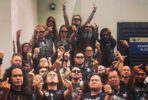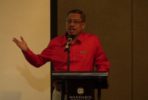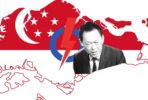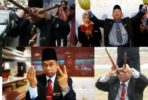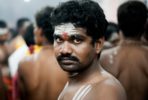As Singapore celebrates her golden jubilee, the Workers’ Party Youth Wing calls on fellow young Singaporeans to share their dreams and aspirations for the next 50 years. More than a dozen young Singaporeans will offer their personal views on Singapore’s future development in three panel discussions. We hope to create a forum for conversation on alternate paths for Singapore — to paint a shared vision and provide inspiration to shaping Singapore’s future to realise community ownership and citizen participation. We hope to provide the catalyst for deeper discussion on the Singapore we want in 2065 and the roadmap to get there. Together, we can build a nation that we can be proud of calling home for generations to come.
Venue: The Agora, Midview City, no. 18, Sin Ming Lane
Date: Saturday, 22nd August
Time: 1pm to 5pm, registration begins at 12pm, doors will close at 12.55pm
Enquiries: [email protected]
This event is open to everyone.
Pre-registration is required due to limited seating capacity at the venue. Pre-registration begins 20th July. Please check back here.
Programme
1pm: Opening Statement by WP Youth Wing President Daniel Goh
1.10pm: Session 1 – Super Urban Singapore (VISION)
2pm: Session 2 – Community & Heritage (OWNERSHIP)
2.50pm: Tea Break Session and Art Competition Voting
3.20pm: Session 3 – Participating in Our Identity (PARTICIPATION)
4.20pm: Summation and Q&A
4.40pm: Closing Remarks
Information about the panellists and their presentation titles will be made available closer to the date
Session Abstracts
Super Urban Singapore
Several major developments that are being planned for the next few decades will transform Singapore’s cityscape. Paya Lebar Airbase and Keppel Port will be relocated, opening up prime land for redevelopment. The current government projects the population will hit 6.9 million in 2030 and is planning to further build up Singapore to accommodate the influx of migrants. By 2065, the 99-year lease clock would be ticking for many HDB estates, where over 80 per cent of Singapore live. The extensive redevelopment of our old heartland regions beckons, as is already happening in old estates such as Queenstown. Would we see the island dominated by 50-storey HDB flats with sky gardens to match the towering skyscrapers of the downtown district? Would most of us live, work, love and shop underground, turning street-front living into a luxury good? What are the environmental, social, cultural and political implications? What should we do to co-create our vision of a super-urban Singapore?
Community and Heritage
We frequently use the term “community” in our public debates to refer to stakeholders in policy and political matters. The government regularly calls upon communities to act on a social problem or for the government to act on, and sometimes both. However, are communities empowered to act or by the government’s action? What forms a community and how can a community be empowered with ownership to realise its social aims and aspirations? SG50 has seen an outpouring of commemoration of Singapore’s heritage, which is seen as intimately connected to communities. The Botanic Gardens was recently inscribed as our first UNESCO world heritage site, a place of significant combined natural-cultural heritage. This island that we call home has more cultural capital than we realise. But are we able to go beyond nostalgia and buildings to value cultural traditions and values as our living heritage and use these cultural assets to foster community ownership as we head to SG100?
Participating in Our Identity
National identity is represented in the culture, language, traditions, history and politics of the people. It is the sense of the nation as a whole, a description and a proposition expressing a strong sense of belonging and belief amongst the people. Our Singaporean identity has developed strong roots over the past fifty years and continues to evolve. What are the main features of our identity and what foreseeable evolution of our identity in the next fifty years can we expect and should embrace? What challenges to our identity do we face and are there gaps we need to fill? One key foundation for national identities around the world is political culture—the values, institutions and practices associated with governance to keep the country running and secure. Is our political culture solid and stable enough to support our identity? How are we, as citizens, going to participate in the political process and shape our identity?
Source: http://wpyouth.sg/sg100




